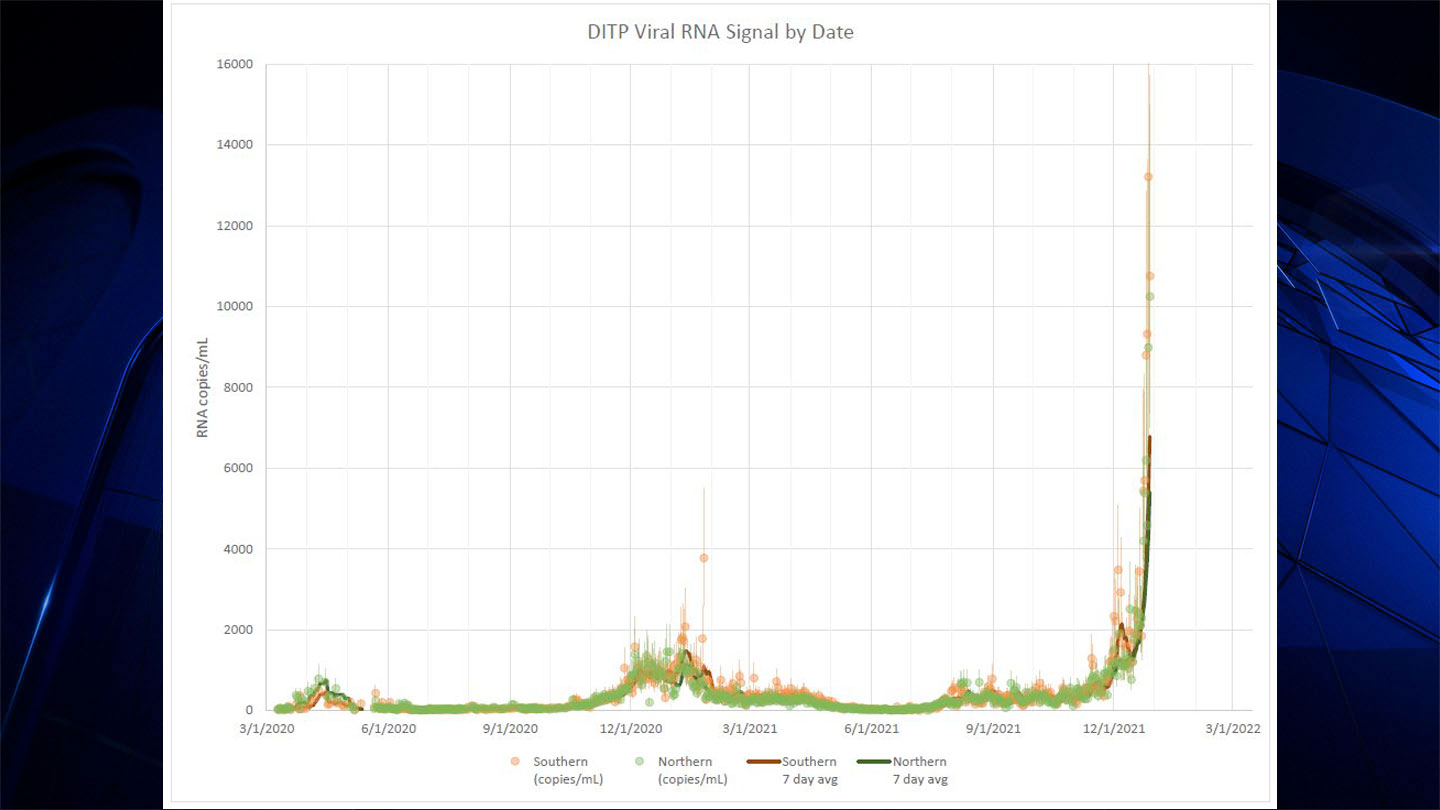Breakthrough infections of the coronavirus are increasing in Boston and Massachusetts, but health experts say it's likely that the symptoms you experience will depend on the vaccine.
Health officials say the omicron variant isn't necessarily bringing with it a new set of symptoms, but with vaccines now widely available, many are experiencing milder cases, depending on their vaccination status.
STAY IN THE KNOW
Watch NBC10 Boston news for free, 24/7, wherever you are. |
|
Get Boston local news, weather forecasts, lifestyle and entertainment stories to your inbox. Sign up for NBC Boston’s newsletters. |
"It's clearly causing vaccination breakthroughs," Boston Medical Center's Dr. David Hamer said last week. "It's better able to evade the immune response from vaccination. There's now evidence from both Pfizer and Moderna that if you have a booster you end up boosting the level of protective antibodies and it appears to be sufficient to prevent omicron. It may not completely prevent it, but it will at least attenuate it and make the illness milder."
Those who are fully vaccinated aren't necessarily getting seriously ill and having fevers for days and difficult breathing, but are instead experiencing a more mild illness similar to a common cold.
Get top local stories in Boston delivered to you every morning. Sign up for NBC Boston's News Headlines newsletter.
The unvaccinated, however, are experiencing similar symptoms to early on in the pandemic, health officials said. That includes fever, cough, chills and shortness of breath.
Dr. Katherine Poehling, an infectious disease specialist and member of the Advisory Committee on Immunization Practices, told NBC News last week that a cough, congestion, runny nose and fatigue appear to be prominent symptoms with the omicron variant. But unlike delta, many patients are not losing their taste or smell.
The evidence so far, according to Poehling, is anecdotal and not based on scientific research. She noted also that these symptoms may only reflect certain populations.
Still, CDC data showed the most common symptoms so far are cough, fatigue, congestion and a runny nose.
In New York, where cases continue to surge, an ER doctor who became known on social media during the pandemic for his documentation of the battle against COVID, reported breakthrough cases he has seen in those with booster shots experienced "mild" symptoms.
"By mild I mean mostly sore throat. Lots of sore throat," Craig Spencer wrote on Twitter. "Also some fatigue, maybe some muscle pain. No difficulty breathing. No shortness of breath. All a little uncomfortable, but fine."
Cases in people who were fully vaccinated with either Pfizer or Moderna's vaccine, but not boosted, remained mild, but slightly more intense.
"More fatigued. More fever. More coughing. A little more miserable overall. But no shortness of breath. No difficulty breathing," he wrote.
For those with Johnson & Johnson who were not boosted, he wrote the patients "felt horrible," with fevers, fatigue, coughs and shortness of breath, but did not require hospitalization or oxygen.
In the unvaccinated, however, the symptoms were more severe.
"Almost every single patient that I’ve taken care of that needed to be admitted for Covid has been unvaccinated," Spencer wrote. "Every one with profound shortness of breath. Every one whose oxygen dropped when they walked. Every one needing oxygen to breath regularly."
Dr. Angelique Coetzee, the South African doctor who first raised the alarm over the new strain, told the BBC that she started to see patients around Nov.18 presenting with "unusual symptoms" that differed slightly to those associated with the delta variant.
"It actually started with a male patient who's around the age of 33 ... and he said to me that he's just [been] extremely tired for the past few days and he's got these body aches and pains with a bit of a headache," she told the BBC.
The patient didn't have a sore throat, she said, but more of a "scratchy throat" but no cough or loss of taste or smell — symptoms that have been associated with previous strains of the coronavirus.
Coetzee said she tested the male patient for COVID, and he was positive, as was his family, and then said she saw more patients that day presenting with the same kinds of symptoms that differed from the delta variant.
Other patients she had seen so far with the omicron variant had also experienced what she described as "extremely mild" symptoms, and she added that her colleagues had noted similar cases.
Similarly, in the first U.S. case, the president's chief medical adviser Dr. Anthony Fauci said the person was vaccinated but had not received a booster shot and was experiencing “mild symptoms.”
Moderna CEO Stephane Bancel told CNBC that omicron symptoms reported in South Africa may not be a good predictor of the variant's virulence in other parts of the world, because the country has a much younger and healthier population than European nations and the U.S.
For now, experts urge anyone who has a cold to assume it is COVID until testing proves otherwise.
According to early findings of a study by the U.K.'s Imperial College London, there is no evidence that the omicron variant is any less severe than the delta variant based on reported symptoms.
"Initially when it first came out from South Africa, reports were that it was causing only mild disease," said Dr. Sabrina Assoumou of Boston Medical Center. "But the thing you have to take into consideration is it was a young population with a high level of immunity. What we're seeing is how omicron performed in a community with a lot of immunity. As we've moved on and gotten a lot more information, with the U.K. data that came out, the way they phrased it, it does not seem to be less severe than delta, so that's the way to think about it. We're not sure if it's going to be either more severe or as severe."
The U.K. data included 24 hospitalizations of patients suspected of having the omicron variant, with researchers saying "hospitalization data remains very limited at this time."
Here in Massachusetts, hospitalizations have been rising.
As of Wednesday, hospitalizations have more than tripled to 1,711 and the positive test rate has risen to 13.58%, exceeding levels observed during last winter's peak.
Members of the Massachusetts National Guard were deployed this week to help staff hospitals and ambulance service providers. And a new order is now in effect requiring hospitals with less than 15% of their staffed medical-surgical and intensive care unit bed capacity available to postpone or cancel non-essential, non-urgent scheduled procedures likely to result in inpatient admission.
"In the last couple weeks there's been a progressive rise in hospitalizations, and many healthcare facilities in Massachusetts are feeling the crunch," Hamer said. "It was already happening before the current rise, but healthcare systems are really being strained right now."
Despite some differences reported between omicron and delta, experts say looking at the symptoms is not enough. And getting tested won't necessarily tell you if you have the omicron variant.
"We need to have ways to quickly tell whether its omicron or something else, although based on Broad [Institute] and other data, it seems like we can assume that almost all infections right now are omicron in Massachusetts and treat them accordingly," Hamer said. "It is presenting challenges at multiple levels of our healthcare system."
Overall, the symptoms for COVID reported by the CDC include:
- Fever or chills
- Cough
- Shortness of breath or difficulty breathing
- Fatigue
- Muscle or body aches
- Headache
- New loss of taste or smell
- Sore throat
- Congestion or runny nose
- Nausea or vomiting
- Diarrhea




